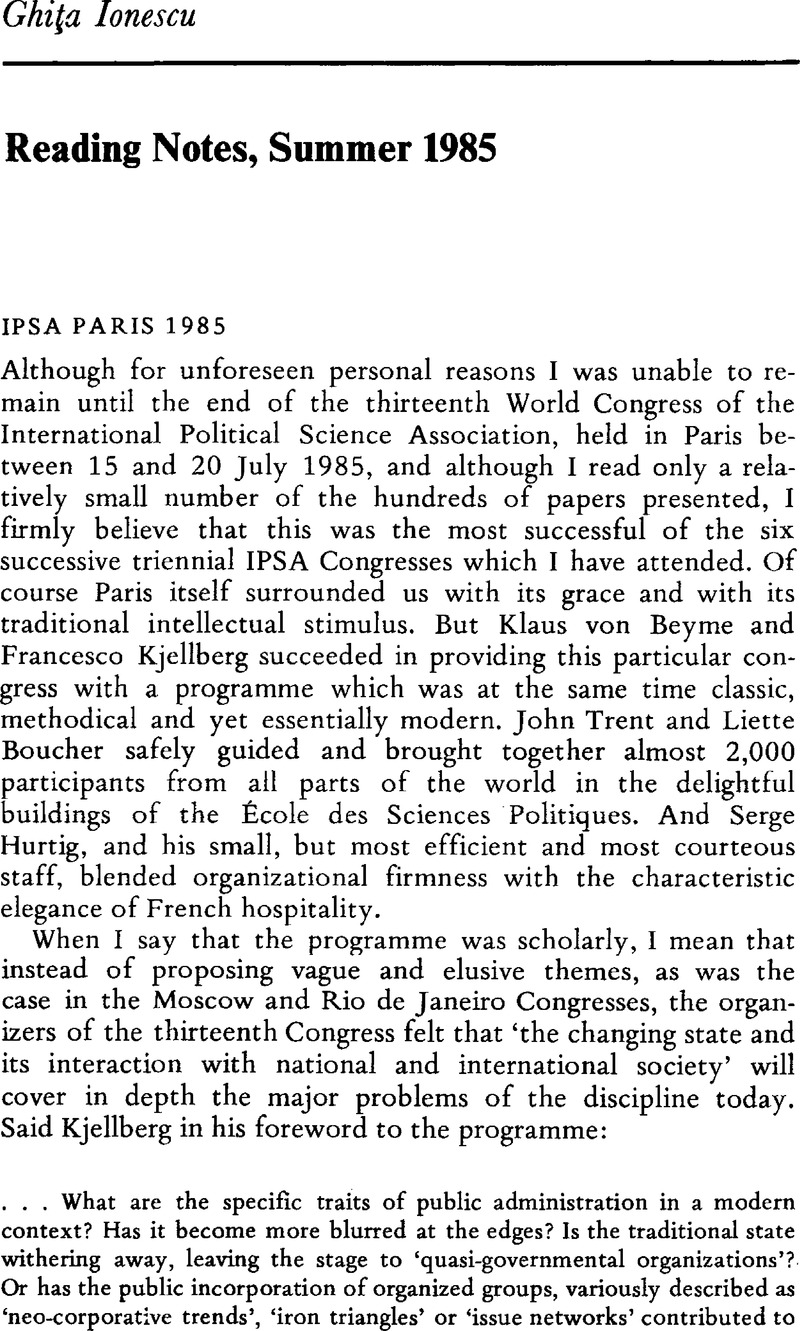No CrossRef data available.
Published online by Cambridge University Press: 28 March 2014

1 I wish that Mr Scargrill would make the effort to read, and to understand, the influential political and social philosophy of the Italian communist trade‐union leader Bruno Trenti (see his influence on Claus Offe). The positiveness of his revolutionary theory based on the acceptance of the changing character of modern industrial society and of the real issues it poses, sadly contrast with the Luddite negativism of Messrs Scargill and Company.
2 Research Committee 3 —European Unification. Chair: Ghiţa Ionescu. University of Manchester. 1. Prospects and Problems of European Community. Chair: Ghiţa lonescu, Papers: Problémes et perspectives de la Communauté Européenne, Émile Noël, EC; Europe between the USA and the USSR, Pierre Hassner, Fondation Nationale des Sciences Politiques; Negotiations and Coalition Formation in the European Community, Helen Wallace, Royal Institute of International Affairs, London. 2. Political Cleavages in the European Community. Comparative Integration: EC and CMEA. Chair: Klaus von Beyme, University of Heidelberg. Papers: Transnational Party Federations: Towards the Emergence of European Political Parties? An Assessment after the Second Direct Elections, Rudolf Hrbek, University of Tübingen; The Political Economy of Regional Integration: Negative and Positive Integration Revisited, John Pinder, Policy Studies Institute, London; Comparative Integration: EC and CMEA, M. Maximova, IMEMO, Moscow; Political Cleavages in the European Community, 1970–85, J.‐R. Rabier, EC and Ronald Inglehart, University of Michigan; New Research on European Unification, G. Ciavarini‐Azzi. EC.
3 The Research Committee on European Unification conference on ‘European Union and the Crisis of l'Europe des Patries’ held at the Policy Studies Institute on 14 June 1985.